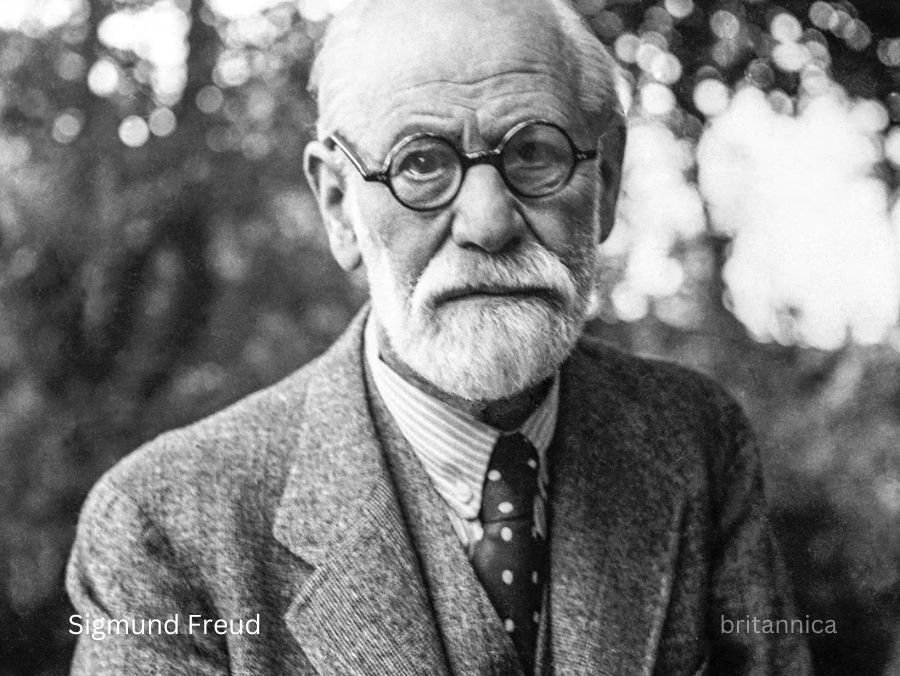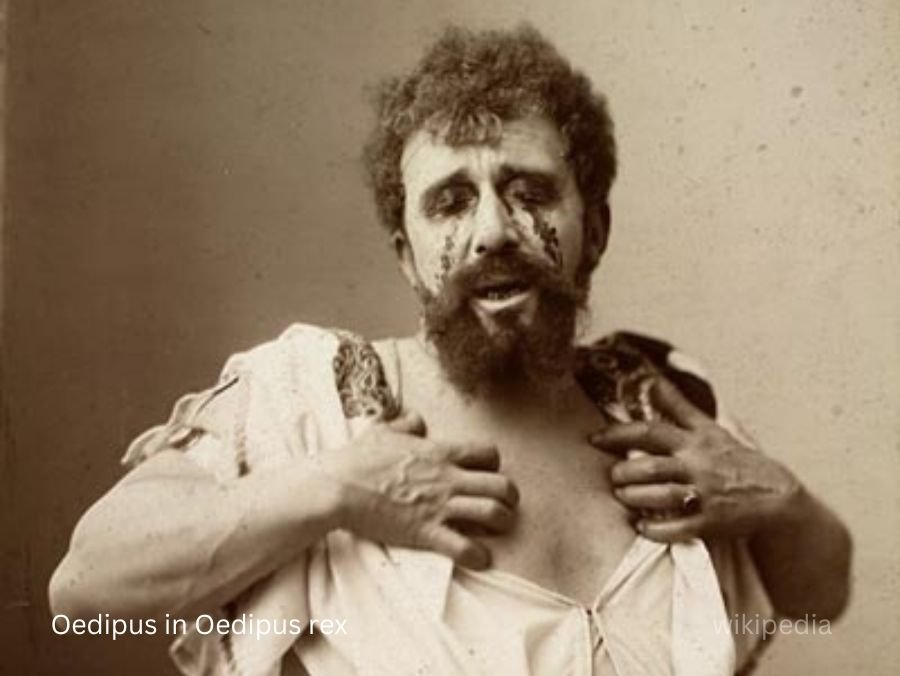Since the beginning, there have been heated debates and arguments surrounding the Oedipus complex and its significance. People from the outside of psychoanalytic circles as well as the inside have stated that there is not a lot of evidence to support its existence. What set apart psychoanalysts from those who practised other forms of therapy was the belief in the Oedipus complex as well as the theory of dream interpretation and unconscious conflicts, as stated by Sigmund Freud. The falling out of Jung and Adler with Freud was because of the disagreements they had surrounding the importance of the Oedipus Complex.
The Development of Oedipus Complex

The death of Freud’s father, Jakob in 1896, painfully reawakened the past for him. He started to work on the concept of the Oedipus Complex shortly after in July 1897 through self-analysis. He realized that there was an inner conflict that had occurred during his childhood. He described it using the Greek tragedy of Oedipus, i.e. his sexual love towards his mother and jealousy towards his father.
He emphasized the universal role that parents play in the psychological lives of their children who later become psychoneurotic. According to Freud, the symptoms of neurosis that appeared in the later life of the child were the result of being in love with one parent and hating the other which form the psychical impulses.
In his paper A special type of choice of object by man (Freud, 1910b), he described the Oedipus complex. He stated that when the boy discovers the sexual relations between his parents and realises that the mother belongs to the father, it triggers sexual impulses within the boy. He starts to desire sexual intercourse with his mother and sees his father as a rival.
Freud concluded that between the ages of 3 to 5 years, the genitals or the phallus play a dominant role in a boy’s sexual development. The boy assumes that all living or non-living beings possess the organ that he does and attempts to compare it with his own. When he discovers that not everyone has a penis, it triggers anxiety in him thinking that it has been taken away from them or castrated as a punishment. To understand the lack of penis in some other beings, he builds up theories like castration to explain it.
Masculine Development
Due to castration anxiety, the boy gives up his sexual desires for his mother and starts identifying himself with the father. This defence mechanism of identification with the father’s conscience and prohibitions forms the basis of the development of the boy’s conscience which Freud referred to as the superego. When the child’s development is characterized as normal, the Oedipus complex leads to the strengthening of the boy’s masculine development. The boy’s sexual desires towards his mother are transferred later on to girls of his age, although the girls may retain some of the qualities of his mother.
Whereas, in the neurotic development of the child, the Oedipus complex is not resolved and thus, the mother or woman who resembles her remains the love object. The relationship that the boy might have with other women is parallel to the little boy’s attachment to his mother. An adult relationship is then characterized by dependency, lack of responsibility and the need to be taken care of. The hatred as well as the rivalry remains active towards the father and father figures.
The Development of Electra Complex
Freud did not work out the details of the Electra complex, although the basic premise of the girl’s desire to be in a sexual relationship with the father and rivalry with the mother stays the same. He stated that the girls do not fear their mothers as boys fear their fathers on account of the castration anxiety. Instead, in the pre-Oedipal stage there is an attachment between the mother and the daughter that is considered important. Freud said that the hostility and competitiveness with the mother develop much later.

Girls do not have a fear of castration by the same-sex parent since they do not have any testicles or penis to fear for. Instead, they possess penis envy and a complex of inferiority arising from the fact that they had already been castrated. The mother is usually seen as a guilty figure for the castration of the girl. Feminine development is seen by Freud as the girl looking for substitutes for her “castrated penis”.
Thus, the healthiest solution comes to the father’s penis which is seen as a sufficient substitute. The girl turns away from her mother and attempts to approach her father in hopes to identify with the mother’s role in the family and bear his children to compensate for the “missing” penis. Many psychoanalysts use this framework to recognise the hostile competitiveness between the girl and the mother over who will be the father’s genital partner. Freud regarded this competition as similar to the fear of the boy’s castration anxiety.
Phallic Personality
The Oedipus complex takes place during the Phallic stage and is considered the most important in the life of every person. If the Oedipal has not been resolved, it results in the development of neurosis. However, if the fixations are limited and are worked through, it might result in certain personality characteristics that are not neurotic, rather they indicate certain tendencies.
Male Personality
A sexualized pattern is seen in the phallic personality wherein the adult might be concerned with looking sexually attractive to the opposite sex. He may be very self-centred and egotistical. The phallic personality not only flirts but carries through with sexual relations, sometimes with a vengeance. The “Don Juan” type of man goes from one love affair to another seeking mother substitutes. Heterosexual love is driven by lust rather than love for the phallic personality.
Male phallic personalities are driven by the unconscious remains of their castration anxiety. Instead of succumbing to the conscience and prohibitions set by the father, he may strive to do something revolutionary to rebel against the norm set by the father. These people often overthrow the system currently in power and bring on a change in social movements. Many famous criminals in history were sons of ministers or highly religious fathers, which highlights the unresolved Oedipus complex.
Female Personality
When talking from the female point of view, the phallic personality who doesn’t resolve her Oedipus complex, by accepting that she lacks a penis, forms a masculinity complex. Such a female goes on to act like a boy, and attempts to derive pleasure from the clitoris which is active and aggressive rather than her vagina which is considered to be more passive.
As an adult, she might be the career woman who seeks her place in a man’s world. Women like these are regarded as castrating females because they wish to take a man’s penis for their own for eg. show him up at the office or defeat him in a court case. If the masculine identification is extreme, a homosexual tie is also seen wherein she might find pleasure in playing husband to another female.
Freud recognises that many modern women seek to compete equally with men in their professional lives. He would not want his theories to be applied to such women who are involved in the feminist movement, rather he understood that not all behaviours can be explained through the psychosexual approach. His ideas cannot be applied universally but might still apply to individual cases.

Homosexuality
Homosexuality was not considered normal or healthy by Freud, instead, he stated that it is a type of phallic personality. Although his explanations of the development of homosexuality changed over the years, he emphasized that genetic or hereditary factors led to a person becoming a homosexual. There are a lot of controversies surrounding the idea of homosexuality as stated by Freud. Today many psychoanalysts challenge his theory.
According to Freud, homosexuality begins in the phallic stage for the boy and its effects are seen around the onset of puberty. A boy that is very close to his mother, pampered and protected by her, rather than getting sexual desires for her, he starts to identify with his mother. He becomes very feminine in his outlook and reenacts the mother-son love that he had enjoyed. He becomes the mother himself and uses other boys as substitutes.
Freud says that other boys are projections of his self. By directing his libido (sexual energy) towards these males, the individual is identifying with himself. Thus, the boy is essentially seeking to love himself through these men who serve as stand-ins for him. Thus, narcissism and homosexuality are related since a homosexual man’s desire is a form of narcissistic self-love. Freud questioned whether homosexuality should be carried on beyond the teenage years since homosexuality is a more identification-based, narcissistic pattern of adult behaviour. Freud considered homosexual acts as a normal aspect of sexual development up until early maturation.
The Myth of Oedipus
Freud’s Oedipus Complex is based on the Myth of Oedipus. An oracle predicts the future of the king of Thebes, Laius and his wife Jocasta. They are told that their son will grow up to kill the father and marry his mother. When their son Oedipus is born, Jocasta gives him to a shepherd to leave him in the woods to die so that the prediction does not come true. The shepherd feels sorry and gives him to a servant. The servant is of the King of Corinth and the King ends up adopting Oedipus.

When Oedipus turns into a young man he visits the oracle at Delphi. A prediction is made that he will kill his father and marry his mother. He decides to never go back to Corinth to avoid the prediction turning into reality. While he is travelling, he encounters an old man and his servant and ends up having a heated argument with them. The old man turns out to be his real father, King Laius, although he ends up killing him without having known that.
Oedipus reached Thebes where he realized that the city was under the terror of a Sphinx. The sphinx kills anyone who does not solve her riddle. Oedipus correctly answers the riddle and defeats the Sphinx, thus she commits suicide. As a reward, Oedipus is crowned the King of Thebes and also marries the widowed Queen, Jocasta, without the knowledge of her being his mother.
Oedipus rules Thebes for a good amount of time until the city is struck by a plague. The prophet brings to the knowledge of Oedipus that the plague is a punishment for the crimes committed by Oedipus by killing his father and the incest that he committed by marrying his mother. Struggling to accept the truth, he eventually realizes what he has done and blinds himself while Jocasta commits suicide. Despite his conscious efforts to not commit such a crime, he could not rewrite his fate.
Biological Origins of Oedipus Complex
To account for the existence of the Oedipus complex, Freud stated that there was a genetic origin to it. He tried to explain why all children had the same desires about their parents at the same age and why these desires ended at the same age. He also had to explain the threat of castration anxiety in childhood.
Freud concluded that the environmental experiences that the child has which are the interactions with the parents do assist in the beginning and the termination of the Oedipus complex. However, he stated that it was biological inheritance that led to the Oedipus complex. Freud came up with the theory of “primal horde” to explain a child’s desire to have sexual relations with the opposite sex parent. The basis of the theory was that learned behaviours of past generations are passed onto the current generations. He adopted this view from the theory on the inheritance of characteristics formed by Lamarck.
He contended that in the past people used to live in small groups which had one dominant male and many females. The dominant male would drive all the male children out of the group as they reached their sexual maturity. However, one day it so happened that a group of brothers formed an alliance and killed their father. The brothers ended up making an agreement in which it was decided that there would be no incest. This was seen by Freud as a form of repression of the feelings of sexual desire towards the mother and identification with the father.
Thus, this agreement to ban incest explains the sexual desires and fear of the father during the Oedipal stage. Freud gave a reason that because taboo means to stop an action, there is an underlying unconscious desire to perform that very behaviour that is prohibited. Thus, he concludes that there is a universal desire to perform incest.
The evidence of Freud’s speculations was found when Darwin stated that gorillas and primitive people lived in small groups that had a dominant male and several wives. Atkinson, to add to the evidence, contends that brothers tend to come together to overthrow the father. Similarly, the studies of the primitives reveal that there is a universal incest taboo against having sexual relations as found by Frazer.
However, critics argue that there is a lack of observational data about human primates to sufficiently support the primal horde theory. They also state that the Darwin-Atkinson theory is just a guess and holds no truth in reality. Recent observations of the gorilla clan reveal that adults do not remove their sons from the group and male apes do not show behaviours that may indicate a desire to mate with their mother. They also highlight that although the father-son gorillas may have a rivalry until the son reaches maturity, it is not over the mother.
Finally, a taboo in place does not indicate that there is an innate desire to perform a prohibited action. Many societies have a ban on killing and stealing. It does not mean that humans wish to secretly kill and steal. The critics suggest that even if such a desire exists, children would not be the carriers of such a desire.
Conclusion
Over the years, psychoanalysts have presented various arguments of a biological and clinical nature to support the Oedipus complex. The conclusions reveal that the belief in the Oedipus complex is unfounded. Although Freud insists that it is essential to believe in the Oedipus complex to be a psychoanalyst, a rejection of this belief does not lead to the invalidity of psychoanalysis as a whole. Psychological theories such as cognitive, developmental and behavioural state that there is no single cause of neurosis as suggested by Freud.
Read More from Psychologs
- Father of Psychoanalysis: A Deep Dive into the Life of Sigmund Freud
- Sigmund Freud’s 5 Most Important Contributions to Psychology
- Let’s Know About the Psychosexual Stages of Development: Sigmund Freud
- The Case of little Hans
- 5 Most Famous Psychologists
References +
- Trotta, A., Formica, I., Social, Genetic and Developmental Psychiatry Centre, Institute of Psychiatry, Psychology and Neuroscience, King’s College London, London, UK, & Department of Cognitive Sciences, Education and Cultural Studies, University of Messina, Italy. (2018). The Oedipus complex in psychoanalysis: reflections on Freud’s clinical cases. Mediterranean Journal of Clinical Psychology, 1. https://cab.unime.it/journals/index.php/MJCP/article/viewFile/1633/pdf
- Kupfersmid, J. (1995). Does the Oedipus complex exist? Psychotherapy Theory Research Practice Training, 535–547. https://doi.org/10.1037/0033-3204.32.4.535
- Fromm, E. (1949). The Oedipus Complex and the Oedipus Myth. The Family, 334–358. https://fromm-online.org/wp-content/uploads/fromm-titles/1949b-eng.pdf
- https://www.researchgate.net/profile/Brigitte-Boothe/publication/318895687_Oedipus_Complex/links/5c8beffda6fdcc381756c66f/Oedipus-Complex.pdf













Leave feedback about this